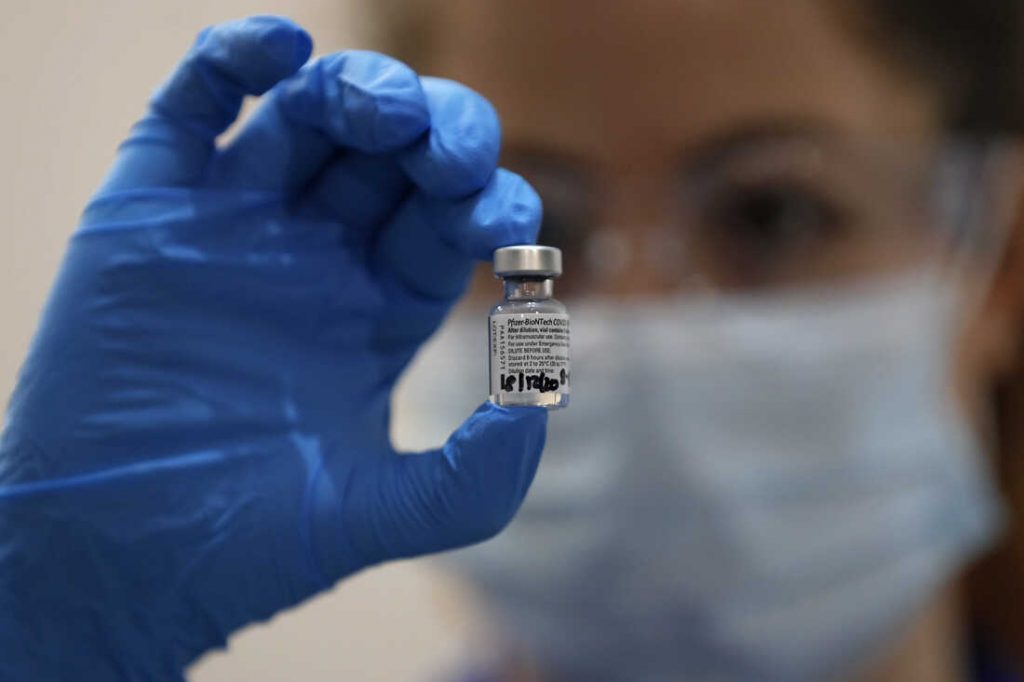The Food and Drug Administration has now approved taking a 2nd dose of the Johnson & Johnson (J&J) COVID-19 vaccine and a 3rd dose of the Moderna and Pfizer/BioNTech vaccine for people above 18 years of age. People in the USA are confused by this update as to whether they should get the COVID-19 booster vaccine or not. Well, through this article you will discover all about COVID-19 booster vaccine – Eligibility, side effects & more.
Frequently Asked Questions About the COVID-19 Booster Vaccine
Who Can Take the COVID-19 Booster Shot?
Individuals who are 18 years and above and have got their Moderna or Pfizer/BioNTech COVID-19 vaccines can now take a booster vaccine, six months or more after their second vaccination dose. Booster shots are also authorized for individuals of 18 years and above who have received the J&J COVID-19 vaccine a couple of months or more months ago.
While getting vaccinated against COVID-19 is a great step towards reducing the spread of the infection, people who haven’t yet received their first vaccination dose should consider getting it as early as possible. Also, continuing to wear face masks in public places is still a mandatory measure that every individual should take to stay safe.
COVID-19 vaccinations not only play a critical role in controlling the spread of infection but also lay less stress on the face mask manufacturers in the USA.
Should the Additional COVID-19 Vaccines Shot Be the Same as the First and Second Dose of the Original Vaccine?
It’s not really necessary. The CDC has approved to implement a mixed strategy for additional COVID-19 vaccines, which means that individuals who are qualified for an extra dose can receive any of the COVID-19 vaccines, irrespective of the vaccine they received for their first or second dose.
For example, if you’ve initially got the vaccination dose of the Pfizer COVID-19 vaccine, you can either opt to receive a third dose of the Pfizer vaccine or get the J&J or Moderna as your booster vaccine shot. So, it’s up to the decision of individuals as to what they prefer to choose. However, all three vaccines are highly effective in mitigating the risk of illness, hospitalization, death, and even the new COVID-19 Delta variant.
Are There Any Side Effects of Booster Shots?
As of now, side effects that have been reported after the booster shots are similar to those experienced with original COVID-19 vaccines. As per the CDC, fatigue, and pain around the injection spot are the two common side effects reported at this time while others range from mild to moderate. There have been very rare cases of severe side effects, however, they may occur.
How to Get a Booster Vaccine If You’re Eligible for the Shot?
If you’re eligible for the COVID-19 booster vaccine, you can check with local medical facilities, pharmacies, and your country’s department of public health to book your slots for vaccination.
Also Read: https://www.co-defend.com/blog/do-i-need-another-covid-19-booster-dose/
What are the Critical Medical Considerations for Receiving COVID-19 Booster Vaccine?
Individuals of 50 years and above with the below-mentioned medical conditions are advised to contact their primary care provider or community pharmacy to book appointments for the third dose of vaccine. The population of the 18-49 age group with the underlying conditions and whose last dose of the Pfizer COVID-19 vaccine has been for 6 or more months can also discuss with their healthcare provider to find out if the additional dose is appropriate for them.
- Pregnancy
- Heart conditions
- Cancer
- Chronic kidney disease
- Chronic lung disease
- Chronic liver disease
- Diabetes (type 1 and 2)
- Down syndrome
- Dementia or other neurological conditions
- HIV
- Tuberculosis
- Immunocompromised state
- Sickle cell disease or thalassemia
- Overweight and obesity
- Smoking, current or former
- Stroke or cerebrovascular disease
- Solid-organ or blood stem cell transplant
- Substance use disorders
- Mental health conditions
How Long After the Second Dose Can You Receive the Vaccine in the Case of Immunocompromised State?
According the CDC and FDA, individuals who are under moderate to severe immunocompromised state and who have received both the doses of an mRNA vaccine (i.e. Moderna or Pfizer) can get a third dose of the same type of COVID-19 vaccine 28 days or more after the second dose.
Will You Still Be Considered “Fully-vaccinated” Even If You Don’t Get the COVID-19 Booster Vaccine?
Yes, of course. According to the CDC, individuals are considered as fully-vaccinated if it has been two weeks since they got the second dose of their Pfizer or Moderna series or the single dose of the J&J vaccine.
Final Note
While the pace of the global COVID-19 vaccination drive is increasing day by day, it is expected that the whole world will soon defeat this global pandemic. However, people are advised to continue wearing their face masks, practicing hand hygiene, and maintaining social distancing as much as possible. If you’re looking to buy face masks online at affordable rates, you can contact us right away for high-quality face masks.
As one of the leading face mask manufacturers in the USA, we offer comfortable, best-quality, and affordable face masks to buy online for our customers. Get in touch with us to place your order today!
